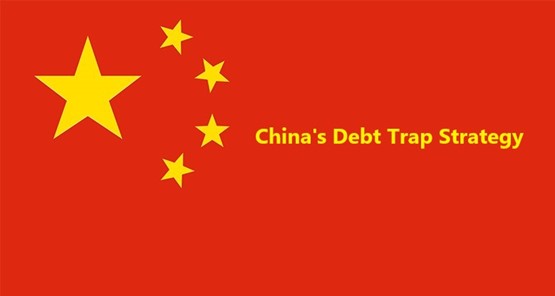Debt sustainability has become a particular concern in Kyrgyzstan, where the government owes over 40% of its debt to the Export-Import Bank of China.
Concerns have been expressed about China’s Belt and Road Initiative (BRI) expenditure.
COVID-19 has had a significant impact on the Kyrgyz economy, with exports to China decreasing by 47% and GDP falling by 8.6% in 2020.
The United Kingdom and Kazakhstan were Kyrgyzstan’s top export destinations in 2019, with gold and precious metal ore accounting for a large portion of the country’s exports.
However, Chinese goods accounted for 53% of Kyrgyzstan’s imports, illustrating the two countries’ trade disparity.
Being so far in debt to China has forced top Kyrgyz authorities to confront uncomfortable considerations about how to handle the debt. “We will lose many of our properties,” Kyrgyz President Sadyr Japarov reportedly said if the debts are not paid.
Returning huge Chinese-funded firms and infrastructure projects to Chinese banks would be a major embarrassment for the government and the country.
According to agreements signed by the former administration, led by Almazbek Atambayev, the Exim Bank of China has the authority to seek repayment of the entire loan amount in the event of late repayments, according to the Kyrgyz Ministry of Finance.
This debt has ramifications that go beyond domestic affairs.
The relationship between Kyrgyzstan and China has affected its foreign policy.
There are a substantial number of ethnic Kyrgyz in re-education centers in Xinjiang, in addition to Uyghurs.
Despite the fact that Kyrgyz domestic opinion is unanimous in its disapproval of these camps, Kyrgyz government officials have tried to avoid raising the matter at all.
This is due to a desire to avoid any negative impact on diplomatic relations between China and Kyrgyzstan.
Additionally, racism and anger towards Chinese people in Kyrgyzstan have started to rise in response to the debt trap situation that the country finds itself in.
Polling data in Kyrgyzstan has revealed highly negative attitudes towards Chinese businesses in the country.
If Kyrgyzstan still cannot pay back its debts to China, it is likely that major infrastructure projects like the Bishkek thermal power plant, the North-South alternate highway, and the Datka-Kemin power transmission line could be transferred to Chinese management.
China is well aware of the dilemma it confronts in deciding whether to preserve its image as a“friendly neighbour” to Central Asian countries or to abandon the facade and proceed with the expropriation of foreign state assets.
Read more on:
https://www.internationalaffairs.org.au/australianoutlook/chinas-debt-trap-diplomacy-in-kyrgyzstan/
And like always our hint, that many of the Chinese people are great and peace-loving but Chinese President Xi Jinping is not.
